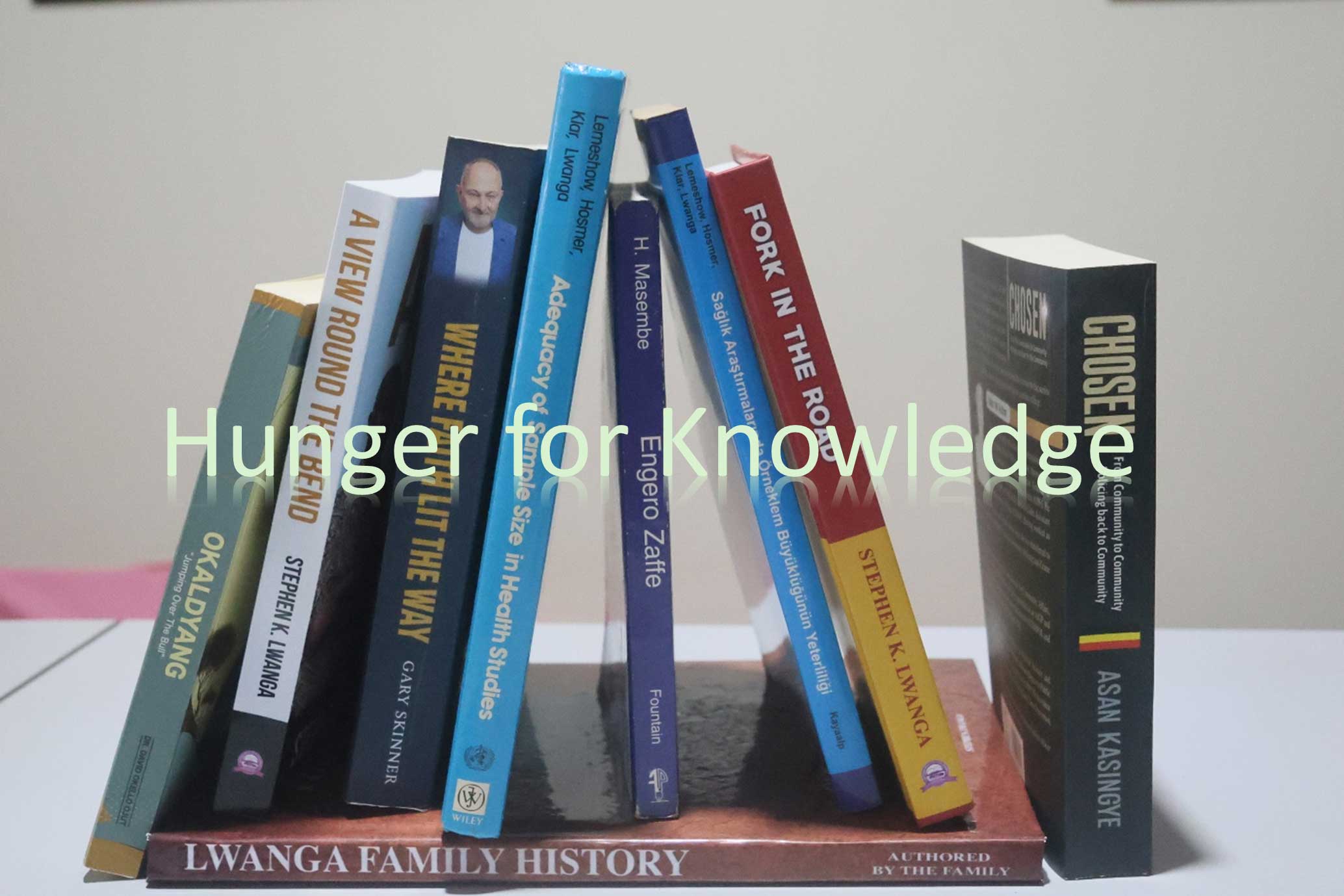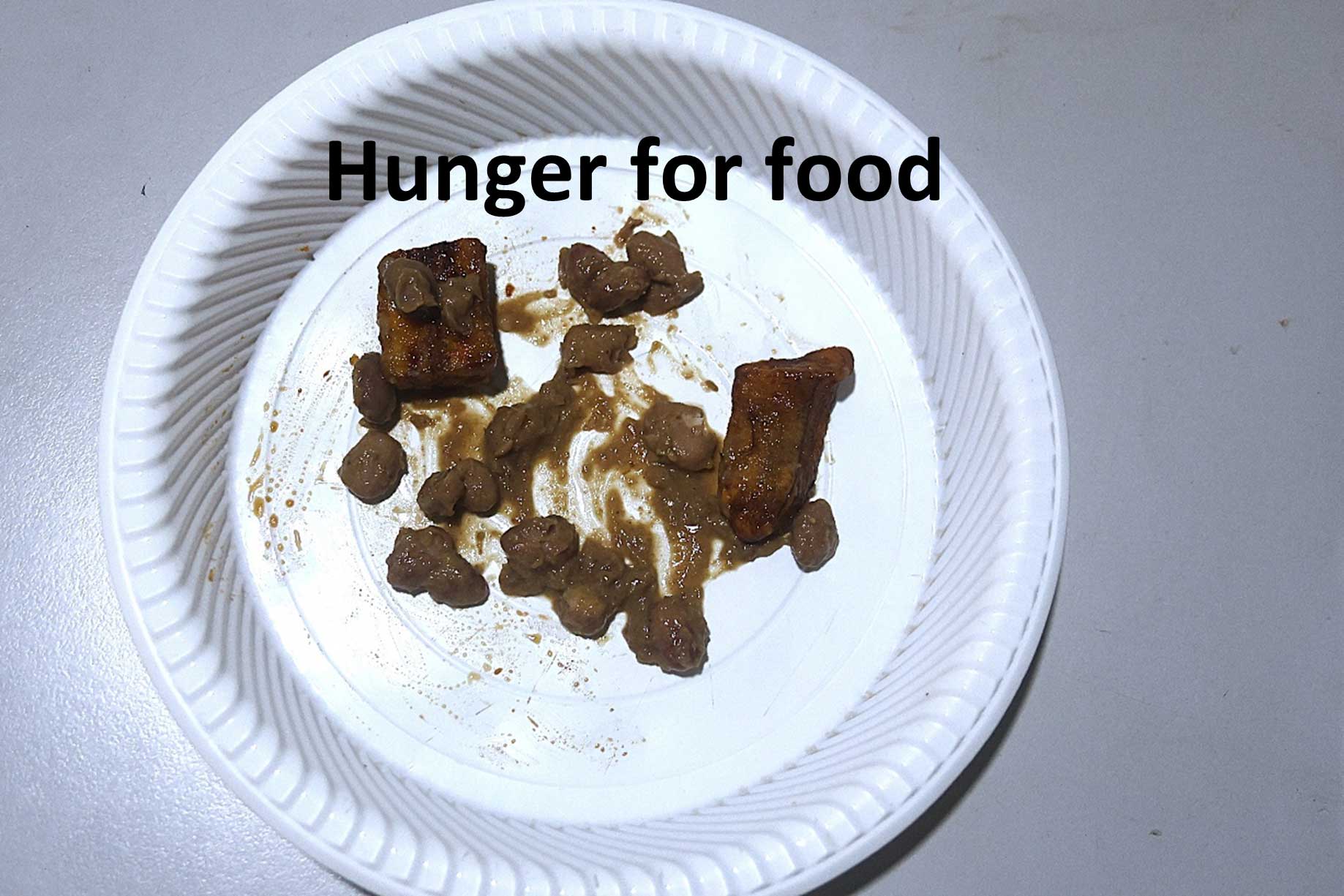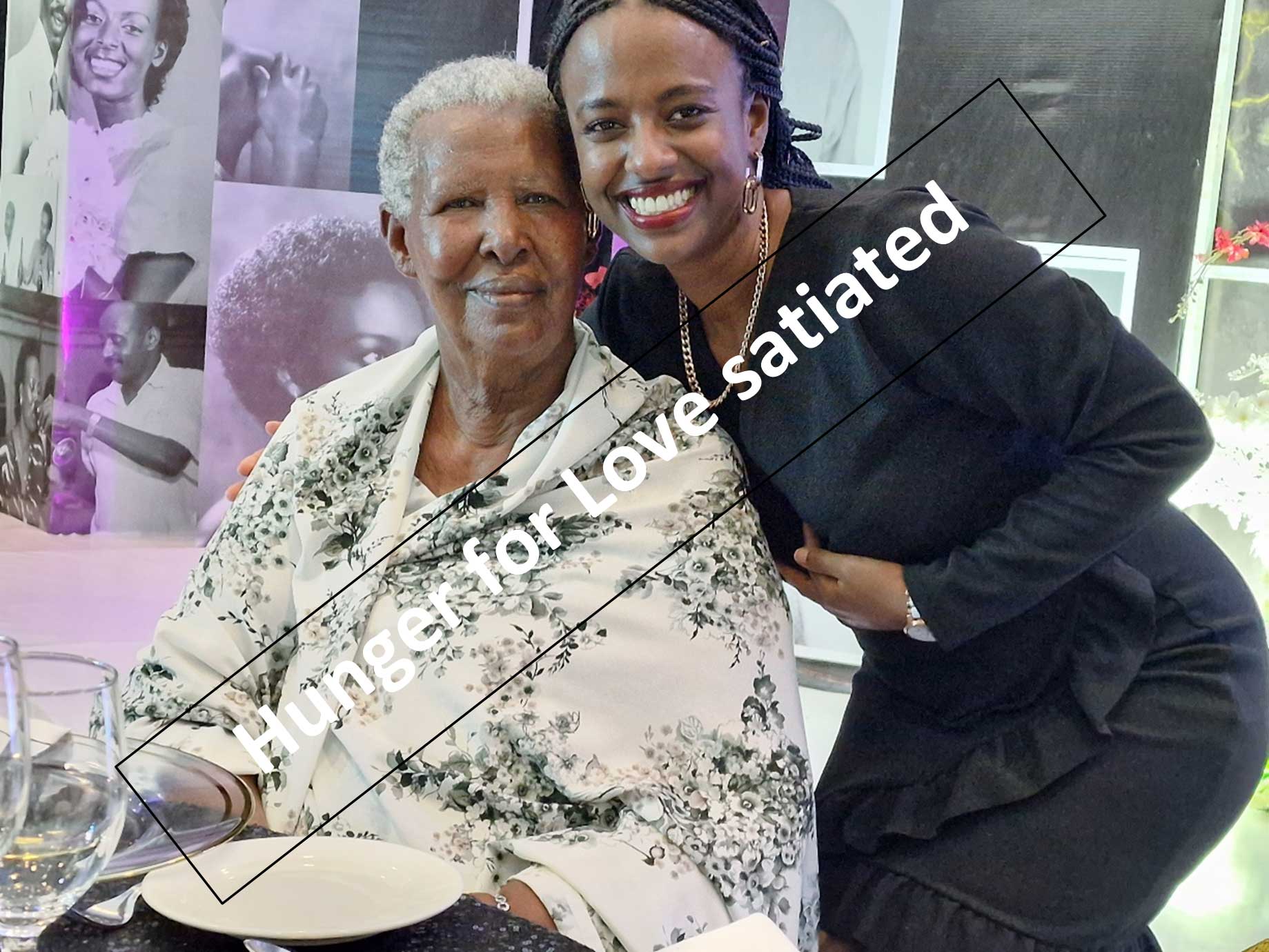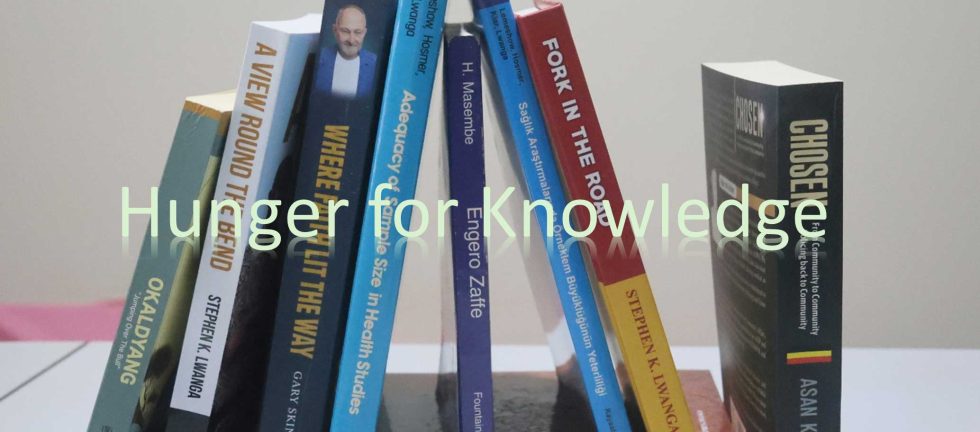Hunger as a topic to muse over was suggested to me by one of the listeners to my podcasts. She was giving me feedback to one of the podcasts and asked me to think about musing over hunger. As I say at the end of each episode, your suggestions are most welcome. This is not the first topic suggested by a reader or listener.
Hunger is a term with literal meaning (in connection with food) and figurative meaning (in connection with non-food related desires), depending on the context. In connection with food, hunger refers to the physiological sensation or condition of needing or wanting food. For example, one could say: “I am hungry because I have not eaten anything since this morning”. It can also describe a prolonged lack of food that leads to undernutrition or starvation. We can say: “There is hunger because of the draught the country has experienced this year”. The physiological sensation of hunger is a necessary biological condition signalling a need for nourishment. The word hunger can also be used to describe a strong desire or craving for something other than food such as knowledge, success, power, love or spiritual fulfilment. These are driving forces of human experience. Each form of hunger speaks to a different issue of what it means to be human, and it can be positive or negative.

Hunger for knowledge is an innate desire for understanding and enlightenment, a human characteristic, driving us to explore, innovate, and evolve beyond the confines of our immediate reality answering the questions to “What?”, “Why?” and “How?”. It is a quest that is not limited to time, culture, and technology, driving us toward greater understanding and modernisation. This curiosity manifests in the innocent questions of a child, through scientific research and a relentless quest for answers. Hunger for knowledge is a persistent journey that defines our humanity. It will remain an inspiration to enlightenment, guiding us toward a brighter, more informed, and better existence. A pursuit for knowledge keeps us searching further and further. Albert Einstein is quoted to have observed that: “The more I learn, the more I realize how much I don’t know.”
Hunger due to fasting is a self-imposed experience very often motivated by religious beliefs. This type of hunger is in the same category as self-flagellation. In religion, hunger is at a spiritual level. Spiritual hunger is said to refer to the deep, innate longing within the human soul for a relationship with God and the fulfilment that comes from knowing Him. It transcends material needs, aiming instead to nourish the soul and provide a sense of meaning that goes beyond daily existence. This is the soul’s yearning for meaning, purpose, and divine existence. Spiritual hunger is universal; it is not confined by creed, culture, or geography. Instead, it serves as a reminder of humanity’s shared longing for connection with the Creator. It can lead to peace and compassion or, if misguided, to dogmatism.

Fasting as practiced in Christianity is rooted in the Bible and Christian tradition. While its form and frequency vary among denominations, it remains a respected spiritual discipline aimed at humility, repentance, and deeper connection with God. Self-inflicted hunger through total fasting, not abstinence from a food item on a specific day, is believed to be done by believers to draw closer to God through prayer and self-denial and for repentance and humility. It is also believed to discipline the body and focus on spiritual matters and at times to seek God’s intercession for others or in search of divine help.
While this musing is over hunger and not fasting, yet one cannot fast without becoming hungry. Therefore, hunger due to fasting in its different forms and emphasis is part of Christianity as can be seen in the Bible.
Apart from Jesus’ human experience of hunger, He used it in his teachings for deeper meanings. Christian preachers interpret Jesus’ statement in Matt 5:6: “Those who hunger and thirst for righteousness are blessed, for they will be filled.” as a spiritual longing like the hunger we feel for food but this being a desire for God’s fulfilment. We are told that it is a longing for God’s justice, goodness and grace. In Luke 6:21 He blesses those who hunger now, because they will be filled.
In Islam, hunger holds hidden blessings that go beyond just the physical act of deprivation. Hunger, particularly during fasting, is seen as a means of spiritual purification, a form of worship, and a way to develop empathy and gratitude.
One of the key benefits of hunger in Islam, particularly through the practice of fasting during Ramadan, is its role in spiritual purification. When a person experiences hunger, he/she is reminded of his/her dependence on Allah for sustenance. The physical experience of hunger becomes a means of cleansing the soul, allowing one to focus on one’s spiritual needs and remove distractions. Scriptures remind us that hunger serves as an aide-memoire of Allah’s existence and helps purify the heart by removing the attachments to worldly desires, focusing on the Creator and cleanse the soul from past sins.
Islam teaches that when one fasts and experiences hunger one can understand better the struggles of those who go without food regularly. This empathy motivates giving to charity and helping those in need.
Hunger for success is the desire to achieve, to grow, to prove oneself or fulfil a purpose. It can inspire excellence and resilience. Yet, if it becomes ego-driven or purely material, it may foster stress, envy, or disconnection from positive values. Albert Schweitzer is quoted as saying that “Success is not the key to happiness. Happiness is the key to success.”
There is little to condone hunger for power whether at a personal or collective group level. At its core, this is a desire for influence and control. It has left human scars through the ages and continues to spill blood and making people poorer. It lacks moral value because its intent is selfishness at the expense of others. Friedrich Nietzsche, a German philosopher, put it as follows: “I know of no greater sin than desire of power.” I infer on this in my “Hooks and ladders” musing

The hunger for love is an intrinsic human need, deeply rooted in our nature as social beings. It is the yearning to connect, to feel valued, and to be understood. Love, in its many forms: romantic, familial, platonic, or even patriotism, has the power to heal wounds, inspire creativity, and nurtures a mentality that looks at challenges as opportunities for growth. It is the force that binds communities, encourages children, and drives acts of kindness and humanity.
Yet, the hunger for love can have a downside. Unmet hunger for love can lead to feelings of loneliness, rejection, or despair. Mother Teresa once remarked, “The hunger for love is much more difficult to remove than the hunger for bread.” Hunger for love is best satisfied by seeking love that is reciprocal and beneficial rather than consuming or restrictive.
Nelson Mandela in his book “Long Walk to Freedom” writes of hunger for freedom during those long and lonely years in prison that his hunger for the freedom of his own people became a hunger for the freedom of all people, white and black. I put this in the same category of hunger for love of one’s country or patriotism at a high level.
Transformation of hunger into compassion begins with awareness that others are experiencing it too and a reflection on what you can do. This opens the heart to empathy: not just seeing suffering in others but feeling with them. Empathy grows when we realize that satisfying our own hunger can include helping to meet others’ needs too. There is a saying that “To be hungry is human. To recognize our hunger in another is divine.” Empathy is born when we see our unmet needs reflected in others, and instead of closing off in self-protection, we react with compassion.
To be hungry, not only for food, but for knowledge, love, and fairness is human. While we cannot eliminate hunger from life, we can choose how we relate to it. We can allow it to divide us between the haves and the have-nots, or we can let it be a path to interpersonal connection. We can turn inward in fear, or outward in understanding.
Thank you for being part of the Fork in the Road Blogs: Reflections on Life. Be sure to look out for the next episode when I will be writing about Hair. If you gathered something useful, please feel free to share the podcast. My books, Fork in the Road: Creating a future of value starting from where you are and A view round the bend. Setting goals for your life’s journey are available for purchase at Aristoc bookshops in Kampala, Uganda and online at Amazon.
Your comments on my musings are most welcome and let me know whether there is a topic you would like me to muse over.


Comments (3)
Robert Yiga
Great Blog
Robert Yiga
Fascinating blogs
Rtn Stephen
Thanks, Rtn Yiga